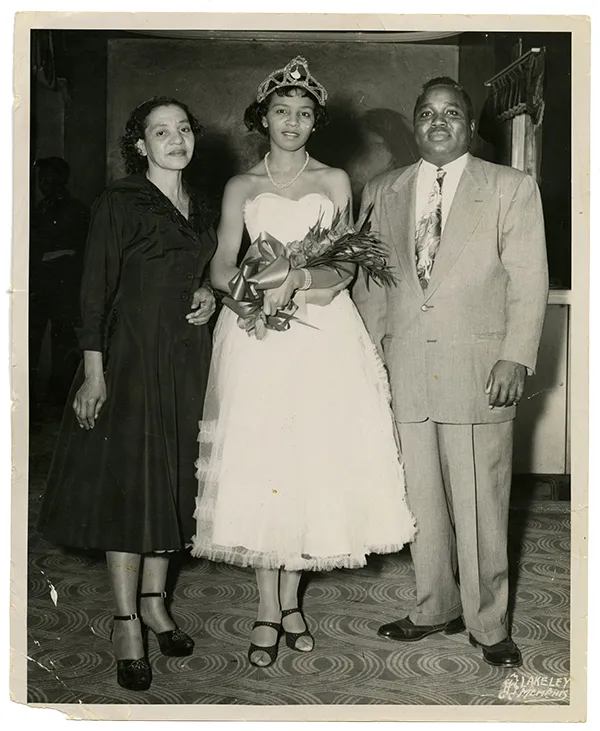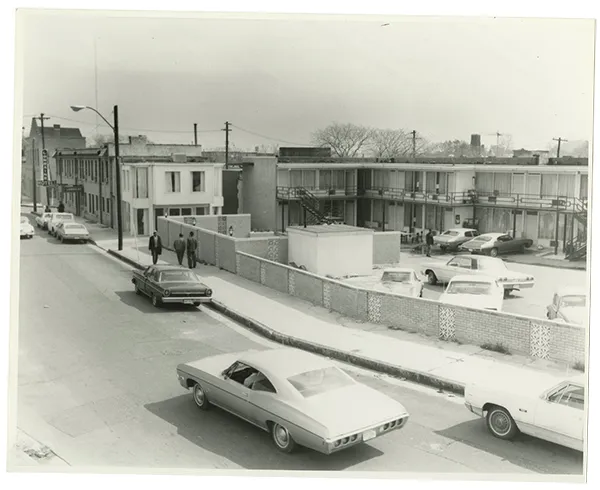For this month’s blog, I want to share two photographs from our Lorraine Motel archive collection. The National Civil Rights Museum provides an engaging narrative of the civil rights struggle, but few know the story behind our most important artifact, the motel building itself. In 1945, a local African American businessman, Walter Bailey (no relation to museum founder D’Army Bailey), purchased the Marquette Hotel on 450 Mulberry Street. Bailey renamed the establishment as the Lorraine Motel, both to honor his wife, Loree and as an ode to the popular 1920s jazz song, “Sweet Lorraine.”
The first photograph is of the Bailey family and was taken in the 1950s. It shows Walter and Loree Bailey dressed up for a formal occasion. Their daughter Carolyn who stands between them is wearing a tiara and carrying a bouquet of flowers. In May of 1958, Carolyn married Charles Champion, a local pharmacist. The couple raised three daughters here in Memphis. In 2016, the Champion family attended NCRM’s inaugural Night at the Lorraine fundraiser. For that occasion, they shared this family portrait with us, and thereby helped to enrich our Lorraine Motel archival collection.

The second photo is one of the motel during the 1960s and in it we see the additions that the Baileys made to the building. The Lorraine became a much larger motel and a more prominent establishment. Bailey added a second floor and extra rooms. He also built a swimming pool and expanded the courtyard to accommodate a drive-up parking area. In a time when Jim Crow restrictions offered limited options for lodging or food, the motel’s signature turquoise framed sign welcomed African Americans who came to Memphis.
During the Lorraine’s heyday, it was not uncommon to see well-known entertainers, athletes and politicians at the motel. Louis Armstrong, Cab Calloway, Nat King Cole, Sarah Vaughn, Aretha Franklin and Otis Redding were just a few of its famous guests. Although Walter Bailey enjoyed hosting celebrities at his establishment, it was also important to him that everyday travelers felt welcomed. The motel boasted an excellent café and renowned customer service. As its reputation grew, the Lorraine became the preferred lodging of important figures in the African American business and political communities. After Martin Luther King Jr.’s assassination outside of room 306, Bailey tried valiantly to keep the motel going and also to keep the memory of Dr. King alive. By the time of Walter Bailey’s death in July 1988, the Lorraine had closed and plans were underway to build a civil rights museum at the site.
If you have an item that could help us tell the story of the Lorraine motel or the civil rights movement, please contact me, Raka Nandi at rnandi@civilrightsmuseum.org.
